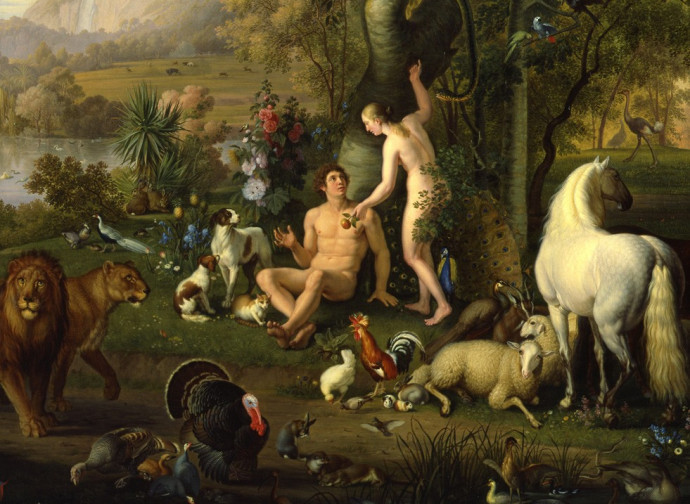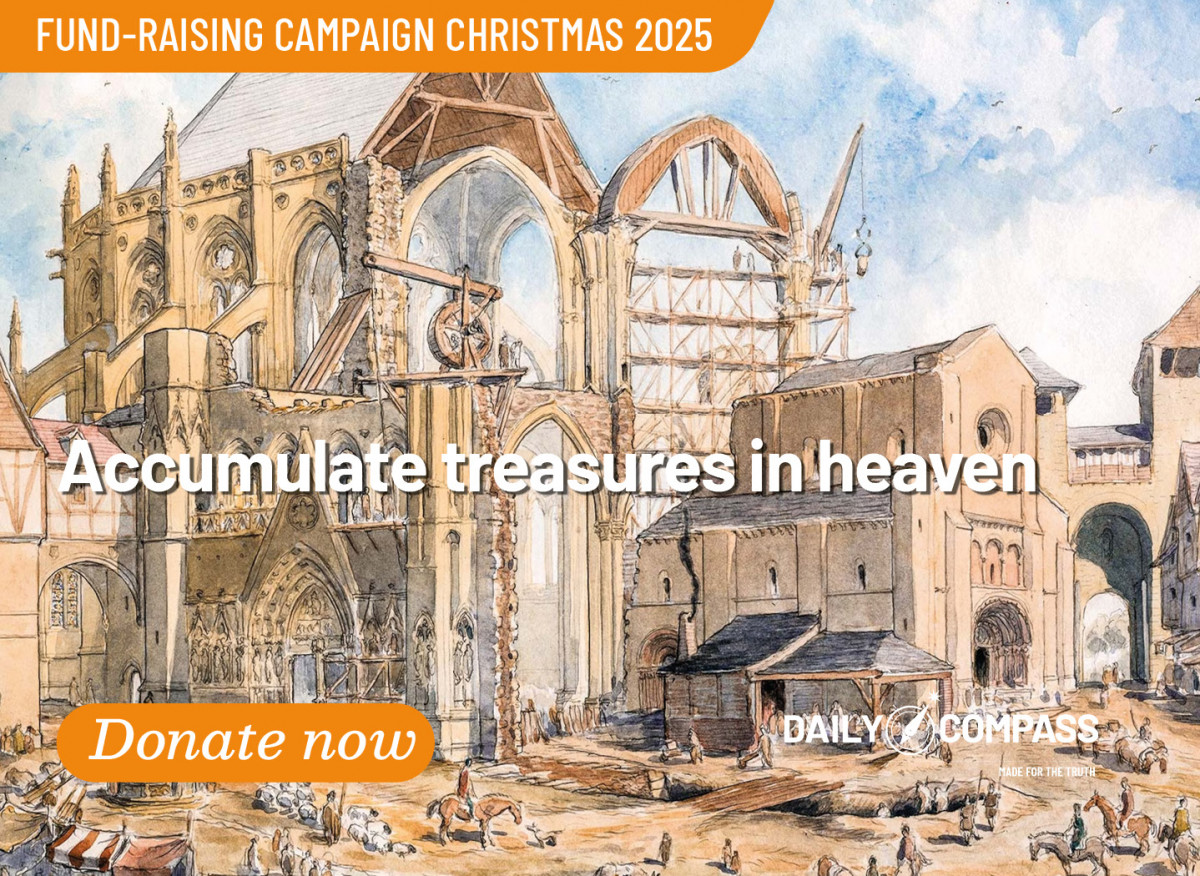Saints Adam and Eve
December 24th is the day of the liturgical memory of the holy ancestors of Jesus, among whom the Church venerates Adam and Eve.

December 24th is the day of the liturgical memory of the holy ancestors of Jesus, among whom the Church venerates Adam and Eve. After their freely-chosen consummation of original sin and expulsion from Eden, our forefathers – according to the Church Fathers and following some hints in the Old Testament – lived a life of prayer and penance, then dying reconciled with God and awaiting the promised salvation for the righteous that would be accomplished with the new Adam, that is, Christ, made flesh thanks to the fiat of Mary; Mary is the new Eve, the beginning of a new creation that exceeds the original in glory, because it is redeemed by the merits of Our Lord, obedient until the Cross. In this sense, the Easter liturgy reads: "O happy fault that merited such and so great a Redeemer!".
Thus Adam and Eve lived and died in the hope of Redemption, which had been mysteriously predicted by God following their disobedience, in that primordial drama where they thought they could no longer re-establish their friendship with Him (“I heard your voice in the garden, and I was afraid, because I was naked; and I hid myself."). But God did not abandon them and, through the words addressed to the tempting serpent, He announced what Tradition has called the "Protoevangelium", the first gospel of salvation: it is, as the Catechism states, "the first announcement of the Messiah and Redeemer, of a battle between the serpent and the Woman, and of the final victory of a descendant of hers." This is based on the famous line from Genesis: "I will put enmity between you and the woman, and between your seed and her seed; she shall bruise your head, and you shall bruise her heel." (Gen. 3:15). This is the beginning of the spiritual struggle that will always accompany the earthly life of every human being called to fight, with the help of God's grace, in order to remain united with goodness.
Adam and Eve had been created in a state of original holiness and justice, sharing in God's life, in perfect harmony with each other and with all creation, where there was neither death nor suffering. Their experience shows, at the very beginning of history, the infinite mercy of God, who seeks to the end to attract his creatures to himself, as He loves His creatures above all creation: He has compassion of them, despite their betrayal His friendship ("For the man and his wife the Lord God made leather garments, with which he clothed them”), and comes to give the graces necessary for sanctification. Having misused their freedom and fallen into Satan's deception of being able to become "like God" – but in fact being (in the words of Saint Maximus the Confessor) "without God and placing themselves before God, not according to God", our forefathers experienced all the horror of sin; as pilgrims on earth, they had the merit of recognising their guilt and of living to expiate it, this time seconding God's grace.
There is a sign of this recognition of God in the words that Eve pronounces after giving birth to Cain: " I have acquired a man with the help of Yahweh" (Gen. 4:1). These are words of praise to the Almighty. That is, our forefathers understand that they have been made partakers, in "one flesh", of God's highest creation work. A few lines down, the Bible's author, in typically dry style, reports a similar thanksgiving for the birth of the third son, named Seth: "'because God has granted me other offspring', she said, 'in place of Abel, since Cain has killed him'". Conflicts between men, who are always free but wounded in their nature as a consequence of original sin, hurl them into an endless abyss, yet God never abandons them, always giving them new descent. Seth becomes the father of Enosh and chapter 4 of Genesis ends with significant information: "This man was the first to invoke the name Yahweh". This is a God who forgives those who feel contrition for their sins and who recognise him as their Father and ultimate destiny.
The holiness achieved or, rather, recovered by Adam and Eve reminds us that, as long as we are in a state of trial (our condition here on earth, before the Judgment), God never denies his help to the man who is willing to welcome Him. This also recalls all the actual consequences of original sin, which the world today prefers to ignore and sneer at, while blindly embracing a pseudo-theory according to which man, the only creature endowed with intellect and called to know and love God, would have an ancestor in common with the ape.
Though this is not the place to expound the doctrine on original sin, it is enough to remember that the Church clearly teaches that "the story of the Fall (Gen. 3) uses a language of images, but describes a primordial event, a fact that happened at the beginning of human history "(CCC 390). In light of that event, the mystery of Christ incarnate and dead on the cross is filled with meaning, according to that that intimate connection that Saint Paul summed up thus: "Where sin abounded, grace abounded". Our forefathers who fell, and repented, were able to believe in this grace.
Further reading:
Catechism of the Catholic Church, Man (points 355-384); The Fall (points 385-421)

